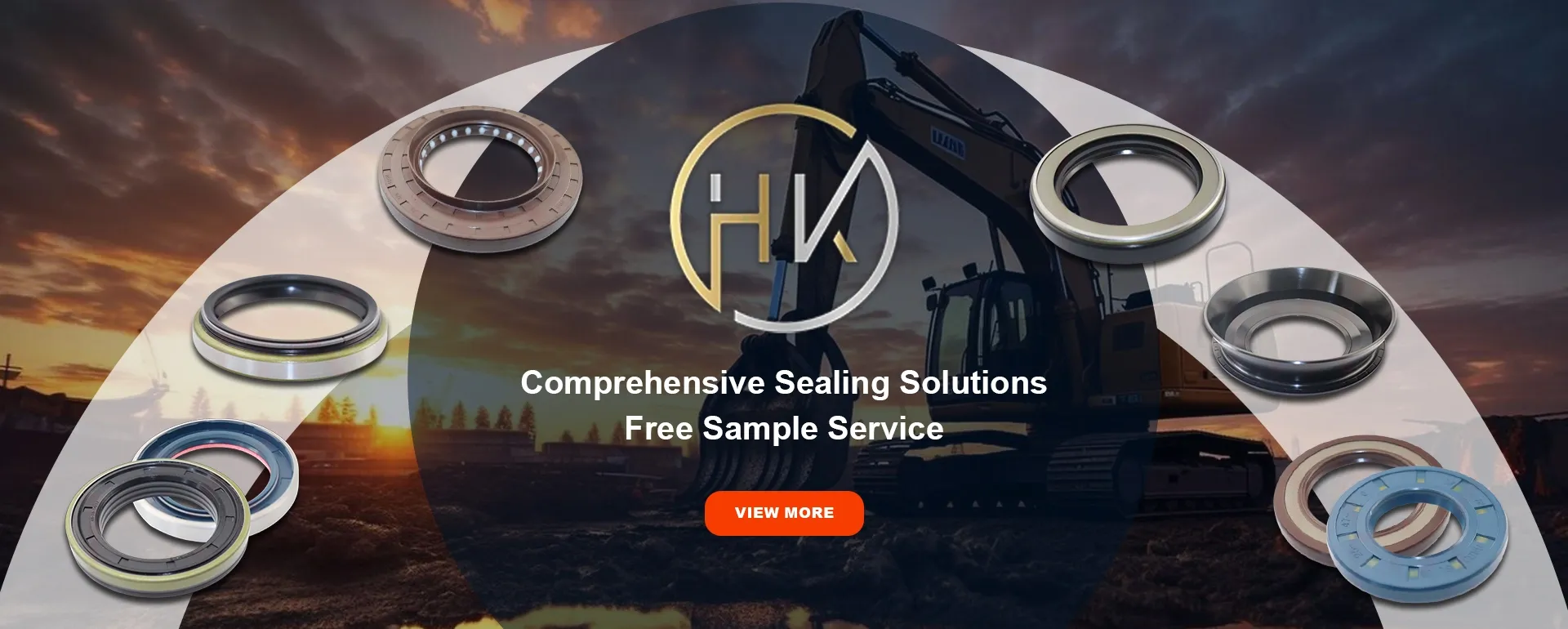Dec . 03, 2024 14:34 Back to list
oil seal
Understanding Oil Seals A Comprehensive Guide
Oil seals, often referred to as shaft seals or rotary seals, play an essential role in various mechanical systems by preventing the leakage of lubricants and contaminants. These seals are crucial in many applications ranging from automotive engines to industrial machinery. In this article, we'll delve into the purpose, types, materials, and installation considerations of oil seals, providing a comprehensive overview of this vital component.
Purpose of Oil Seals
The primary function of oil seals is to retain lubrication while simultaneously preventing dirt, dust, and moisture from entering the machinery. They create a barrier that helps maintain the integrity and efficiency of lubricated systems. In automotive applications, oil seals are found in places such as crankshafts and camshafts, where they prevent engine oil from leaking and ensure that the engine operates smoothly. In industrial machinery, oil seals help protect gearboxes and bearings, extending their lifespan and reducing maintenance costs.
Types of Oil Seals
There are several types of oil seals, each designed for specific applications and conditions. The most common types include
1. Single Lip Oil Seals These seals have one sealing lip that presses against the shaft, preventing leakage. They are widely used in light-duty applications where only one side needs sealing.
2. Double Lip Oil Seals Featuring two sealing lips, this design provides enhanced protection against both leakage and the ingress of contaminants. This type is commonly used in more demanding environments.
3. Spring-Loaded Oil Seals These seals incorporate a spring mechanism that exerts pressure on the lip, improving the seal's effectiveness and durability, especially in applications subject to high pressure or varying temperatures.
4. Metal-Cased Oil Seals With a metallic outer casing, these seals offer greater structural integrity and resistance to deformation, making them suitable for heavier-duty applications.
5. Non-Metallic Oil Seals Made from synthetic materials, these seals are lightweight and resistant to corrosion, making them ideal for specialized applications in the automotive and aerospace industries.
Materials Used in Oil Seals
The selection of materials for oil seals is critical, as different materials offer varying levels of resistance to temperature, chemicals, and wear. Common materials include
oil seal

- Nitrile Rubber (NBR) Widely used due to its good oil resistance and flexibility. It is suitable for most automotive applications.
- Fluoroelastomer (FKM) Known for its high temperature and chemical resistance, FKM is often used in harsh environments where conventional rubber would fail.
- Polyurethane This material is increasingly popular for its durability and resistance to wear, making it suitable for applications with abrasive conditions.
Installation Considerations
Proper installation of oil seals is vital for their effectiveness and longevity. Here are some important considerations
1. Surface Preparation Ensure that the shaft and housing surfaces are clean and free from any debris or damage. Any imperfections can lead to premature seal failure.
2. Correct Sizing Always select the correct size of oil seal for the application. An incorrect fit can result in insufficient sealing and increased wear.
3. Use of Lubricants Applying a light layer of lubricant on the sealing lips can reduce friction during installation and help the seal conform better to the shaft.
4. Avoid Exceeding Maximum Speeds Oil seals have rated maximum speeds, and exceeding these can lead to failure. Make sure to adhere to manufacturer specifications.
5. Regular Maintenance Regularly inspect oil seals for signs of wear, damage, or leakage. Early detection can prevent more extensive damage to machinery.
Conclusion
Oil seals are critical components in ensuring the efficiency and longevity of various mechanical systems. By understanding their function, types, materials, and proper installation practices, engineers and technicians can effectively select and maintain oil seals to optimize performance. Investing time in choosing the right oil seal and ensuring its correct installation will pay off in reduced maintenance costs and prolonged equipment life. Whether in automotive applications or industrial machinery, the importance of oil seals simply cannot be overstated.
-
TCN Oil Seal Metal Ring Reinforcement for Heavy Machinery
NewsJul.25,2025
-
Rotary Lip Seal Spring-Loaded Design for High-Speed Applications
NewsJul.25,2025
-
Hydraulic Cylinder Seals Polyurethane Material for High-Impact Jobs
NewsJul.25,2025
-
High Pressure Oil Seal Polyurethane Coating Wear Resistance
NewsJul.25,2025
-
Dust Proof Seal Double Lip Design for Construction Equipment
NewsJul.25,2025
-
Hub Seal Polyurethane Wear Resistance in Agricultural Vehicles
NewsJul.25,2025
-
The Trans-formative Journey of Wheel Hub Oil Seals
NewsJun.06,2025
Products categories
















